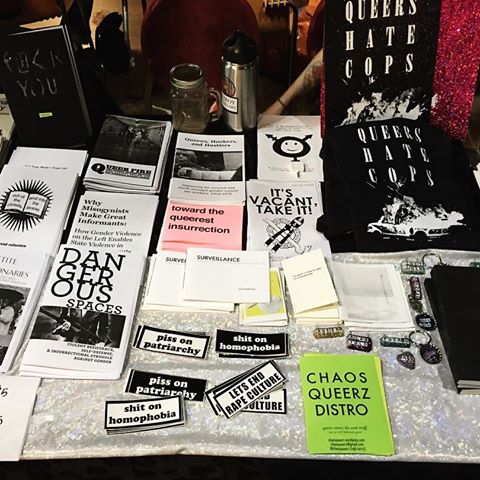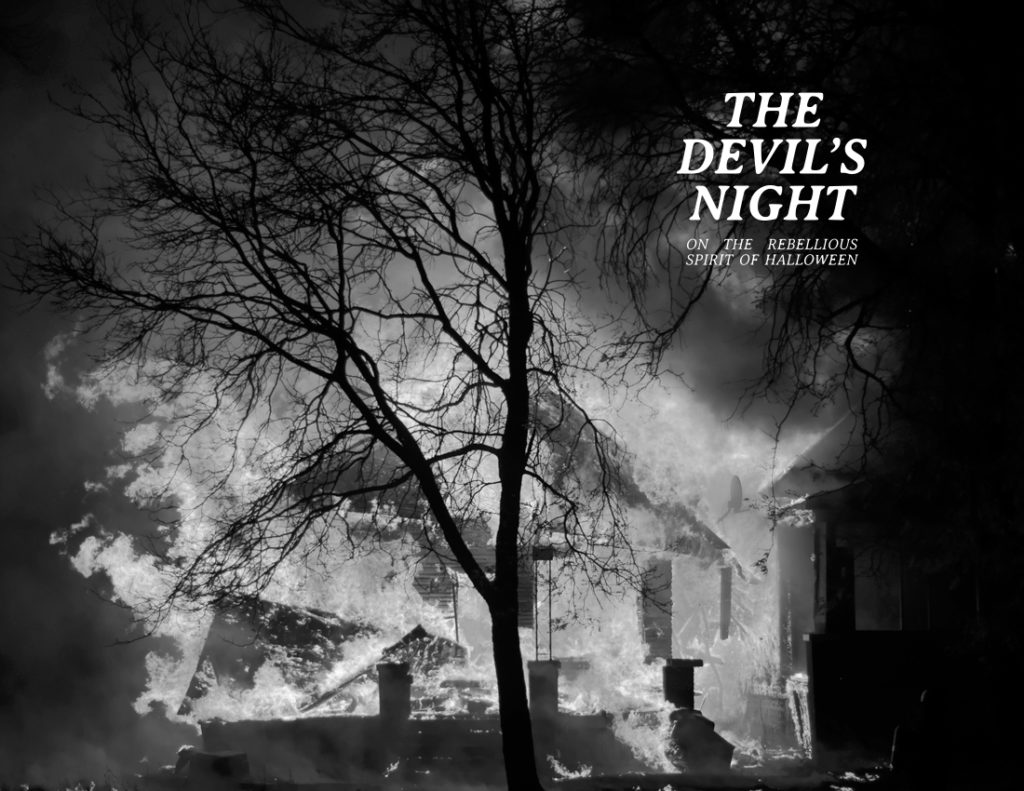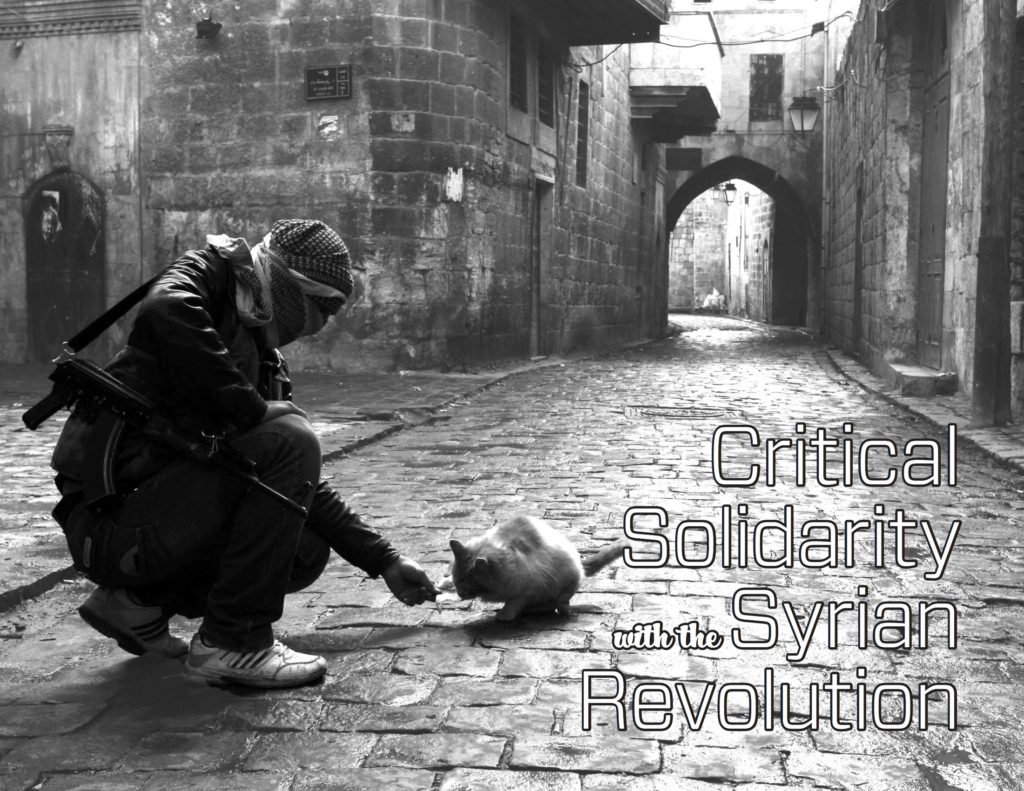Filed under: Publication

Podcast: Play in new window | Download
Subscribe: RSS
From Ruins of Capital and Resonance Audio Distro
The Devil’s Night: On The Rebellious Spirit of Halloween
Originally published by Mask Magazine, October 2015. Revised and expanded by the author, October 2016.
The following is an interview with Gord Hill (Kwakwaka’wakw nation), who frequently writes under the pseudonym Zig Zag. The interview was originally published in the 12th issue of Fire To The Prisons (Spring 2015).
In late July, 2016, subMedia conducted an interview with Tom Nomad on the recent RNC counter-demonstrations in Cleveland, and the political environment in the US in the wake of police shootings in Dallas and Baton Rouge.
Against The Romance Of Community Policing
By Stuart Schrader. Adapted for A World Without Police from this post.
Activism, Civil War, & Insurrection
From Opaque Editons
In light of the recent shooting in Dallas, this text seems even more crucial to understanding the current moment.
From Insurgencies No. 2 by the Institute for the Study of Insurgent Warfare.
“Agency Against Pipelines” was originally published in the second issue of Wreck, an anarchist publication based out of Vancouver, Occupied Coast Salish Territories.
Critical Solidarity with the Syrian Revolution
Originally published as The Most Important Thing: Two Speaking Tours & The Syrian Revolution” by The Hamilton Institute.
From The Warzone of North Kurdistan
First person perspective from the warzone of North Kurdistan, from Lower Class Magazine.
Another Response in the Ongoing Debate on What Constitutes Reformist Tactic.
By Sean Swain
From Wildfire #4
A Crime Called Freedom – AudioZine
3:04:00 – A Crime Called Freedom: Writings of Os Cangaceiros Vol. 1 – by Os Cangaceiros – MP3 – Read – Print – Torrent – Archive – YouTube
Click Here for a Chapterized Version
Os Cangaceiros was a group of delinquents caught up in the spirit of the French insurrection of 1968 who refused to let that spirit die. With nothing but contempt for the self-sacrificial ideology practiced by “specialists in armed struggle”, this uncontrollable band of social rebels wreaked havoc on the French state—attacking infrastructures of oppression, supporting popular revolts, stealing and releasing secret blueprints for high-tech prisons, raiding the offices of corporate collaborators, and creating their lives in complete opposition to the world based on work. This volume, translated by Wolfi Landstreicher and originally published by Eberhardt Press, is the first substantial collection of the writings of Os Cangaceiros in English.
“Have you recovered from your wounds, architect? Have you guessed why it happened? Shamelessly, without a single scruple, inch-by-inch, you have designed the cells in which even the handicapped will be locked up. Inside the walls that you design, people who are worth much more than you are will be beaten regularly. It was about time that you had a taste of what thousands of prisoners will have to suffer to a much greater degree. Of course, architect, your corporation is no less infamous. Seeing the habitations you construct for normal city dwellers, one can recognize your competence for locking up delinquents. It is easy to pass from the towers of the 13th district to the prison cell. Pig, seeing your snout up close, we were able to observe on your weary face how much you busy yourself with your projects. Earlier you built walls; now you keep close to them.”
– Os Cangaceiros
Musical Interludes: “Trop de temps” – Le Gale
Delusions of Progress – AudioZine
30:24 – Delusions of Progress: Tracing the Origins of the Police in the Slave Patrols of the Old South – by Neal Shirley & Saralee Stafford – MP3 – Text – Archive – Torrent –YouTube
The following was originally written for Scalawag, a magazine of southern culture and politics, with the aim of contributing to ongoing discussions of where the institution of police comes from and how it might be destroyed. While many have a general awareness that American policing has its origins in slave patrols, we found some of the specifics of how and when that transition occurred to be illuminating and worthy of looking at in greater detail.
“These are just some of the questions attending to the history of slavery and policing, as those forces continue to haunt both normal, daily life as well as the increasingly common moments where that normality is ruptured in some way. But slavery doesn’t just hover in the background like a spectre from another century; it actively tells us who we are and where our loyalties lie, it distinguishes the dead from the living, it holds the keys to prison cells and patrols our streets.”







